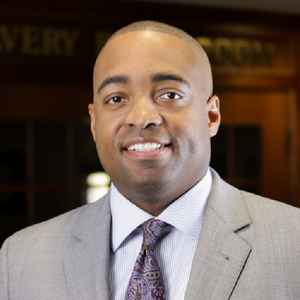
Budget & Tax , Education , Higher Education
Jonathan Small | December 12, 2015
Free Market Friday: Tax hike unwise
Jonathan Small
The proposal by University of Oklahoma President David Boren to boost the state sales tax to increase government spending on common education, higher education, CareerTech and preschool has drawn considerable discussion.
What might happen if the sales tax increase is approved? Well, for starters, most Oklahoma communities would have some of the highest sales tax rates in the nation. Under the petition’s proposal, Oklahoma’s state sales tax rate would be 5.5 percent. Add the 4 percent or more levied by most cities and buying something in Bethany (combined 9.5-percent sales taxes) would cost more than in Manhattan (8.875 percent.)
But there are other pitfalls in depending on a sales tax to increase education funding.
First, think about local merchants. As Oklahoma’s highest-in-the-nation sales tax rate drives more consumers to shop online, revenues at local stores are likely to steadily decline.
“We are already being hurt tremendously by Internet sales,” said Tulsa Mayor Dewey Bartlett.
The Boren tax increase will exacerbate the problem. That is without question. Bartlett and numerous cities are so concerned about the problems with the proposal that Bartlett and the Oklahoma Municipal League have filed amicus briefs to support OCPA Impact’s constitutional challenge of the proposed ballot initiative.
Second, economists Scott Moody and Wendy Warcholik point to another way the tax hike will hurt small businesses.
“According to a recent study from the Council on State Taxation, 47 percent of the current sales tax is paid by businesses when they invest,” they write. “By taxing investment, Oklahoma would create fewer job opportunities for future graduates.”
Third, according to the petition, 60 percent of revenues would flow to schools to increase teacher pay by $5,000 per year. That sounds good, but a pay raise this year requires a steady revenue stream to maintain those higher salaries. Given the onerous requirements the proposal imposes on future legislative appropriations, other core areas of government would be cut significantly to fund the additional spending increases mandated by the proposal.
The vast majority of Oklahomans agree that teachers have earned a significant pay raise. But hiking taxes to fund raises is a risky and damaging proposition. Fortunately, my colleagues have identified hundreds of millions of dollars in annual savings in state spending that would fund those raises, with no tax increase at all.

Jonathan Small
President
Jonathan Small, C.P.A., serves as President and joined the staff in December of 2010. Previously, Jonathan served as a budget analyst for the Oklahoma Office of State Finance, as a fiscal policy analyst and research analyst for the Oklahoma House of Representatives, and as director of government affairs for the Oklahoma Insurance Department. Small’s work includes co-authoring “Economics 101” with Dr. Arthur Laffer and Dr. Wayne Winegarden, and his policy expertise has been referenced by The Oklahoman, the Tulsa World, National Review, the L.A. Times, The Hill, the Wall Street Journal and the Huffington Post. His weekly column “Free Market Friday” is published by the Journal Record and syndicated in 27 markets. A recipient of the American Legislative Exchange Council’s prestigious Private Sector Member of the Year award, Small is nationally recognized for his work to promote free markets, limited government and innovative public policy reforms. Jonathan holds a B.A. in Accounting from the University of Central Oklahoma and is a Certified Public Accountant.